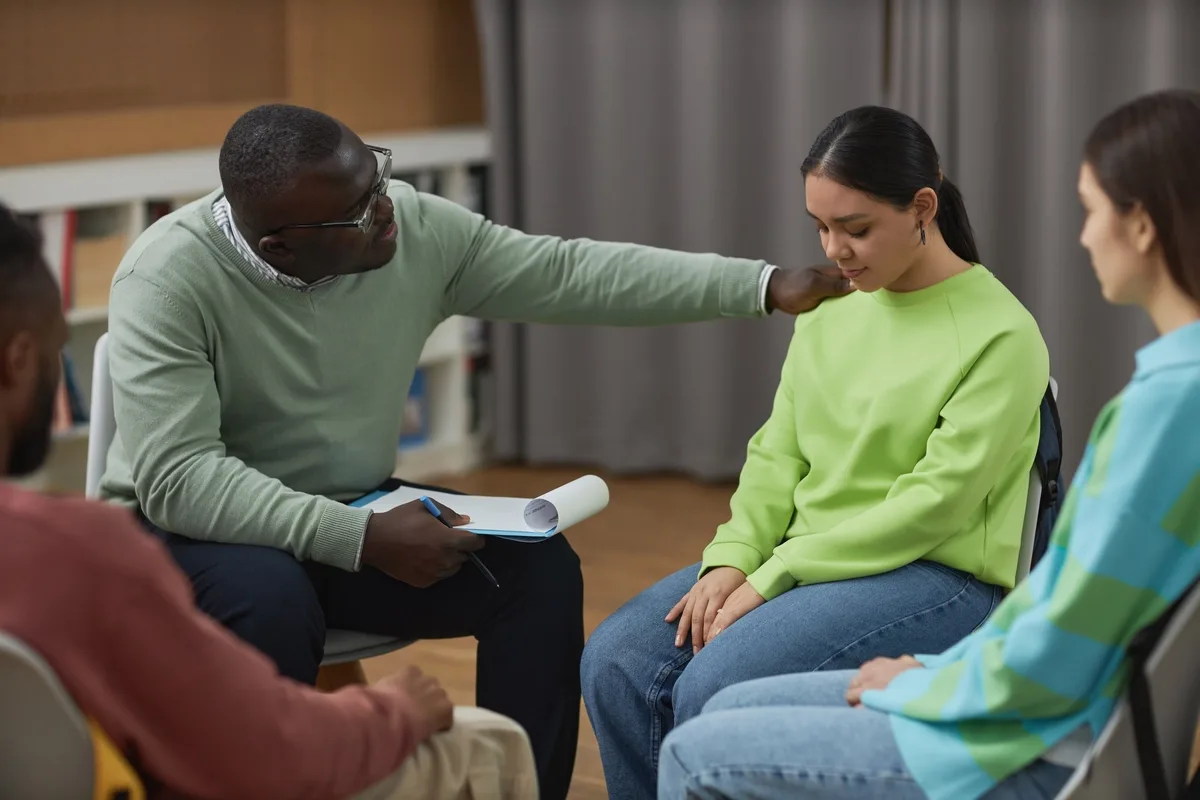24/7 Helpline:
(866) 899-221924/7 Helpline:
(866) 899-2219
Learn more about PTSD Treatment centers in Cleburne County

Other Insurance Options

Covered California

CareSource

Regence

Oxford

Cigna

Medical Mutual of Ohio

MHNNet Behavioral Health

Meritain

Health Partners
Beacon

GEHA

Private insurance

Access to Recovery (ATR) Voucher

BlueCross

Coventry Health Care

WellCare Health Plans

Aetna

Premera

Ceridian

Health Net

Intensive Outpatient Care
Intensive Outpatient Care is a private rehab located in Edwardsville, Illinois. Intensive Outpatient...

DeRousse Counseling and DUI Services
DeRousse Counseling and DUI Services offers an outpatient program for substance abuse and addiction ...






Addiction Treatment Strategies
Addiction Treatment Strategies is a private rehab located in Edwardsville, Illinois. Addiction Treat...













































